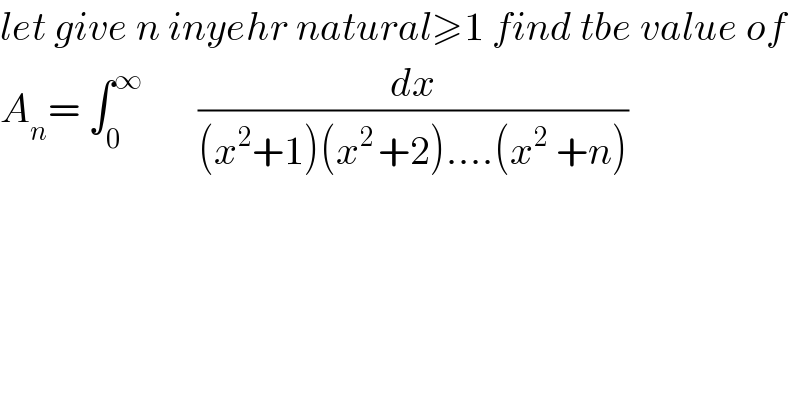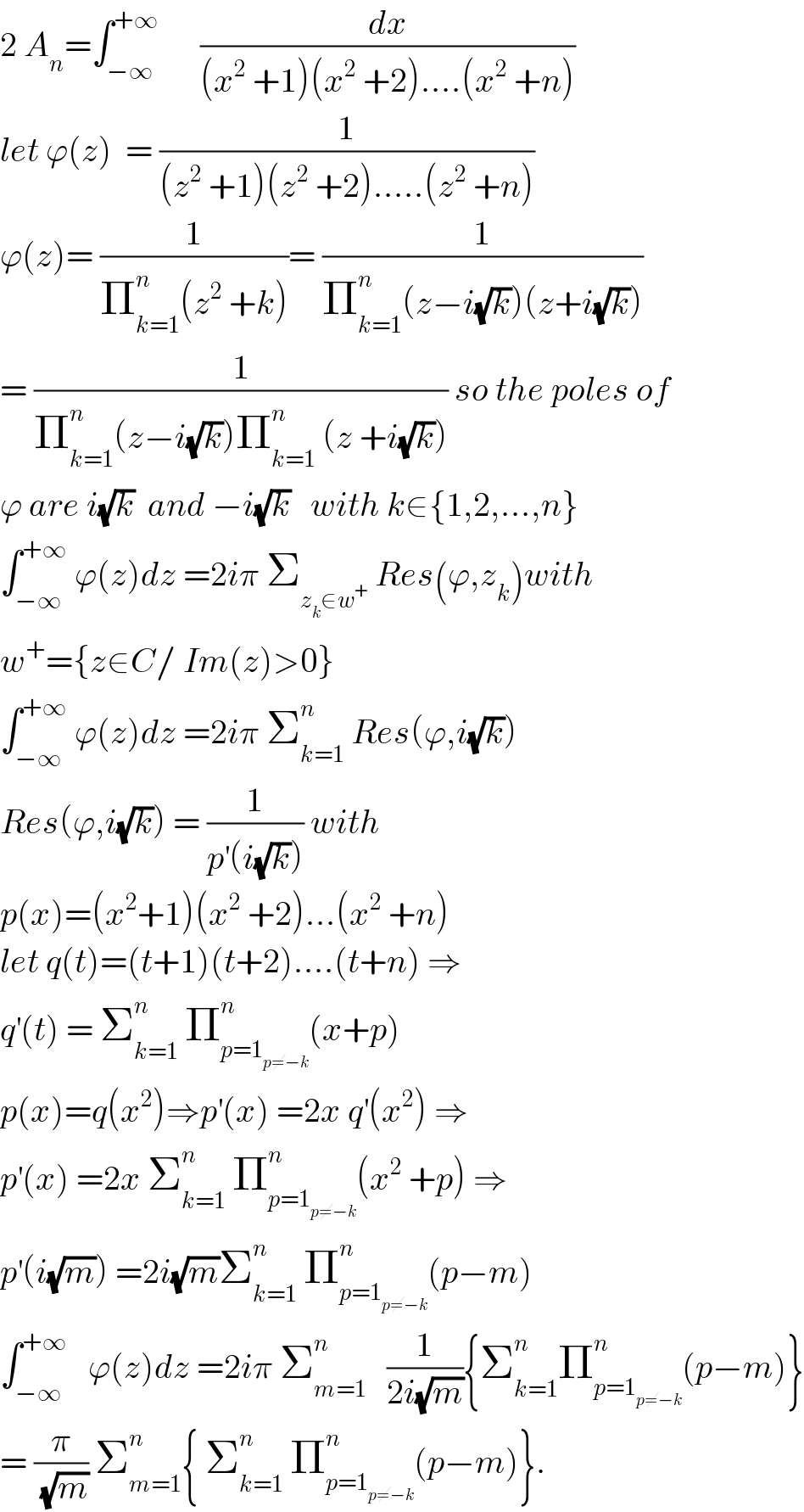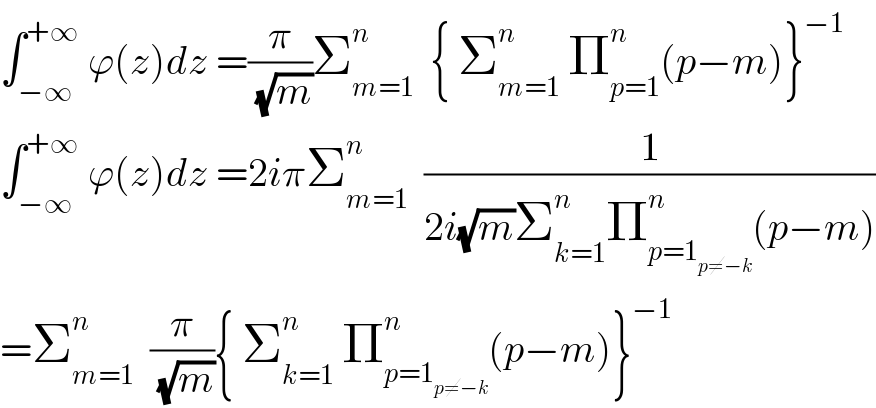
Question and Answers Forum
Question Number 37601 by prof Abdo imad last updated on 15/Jun/18

Commented by math khazana by abdo last updated on 17/Jun/18

Commented by math khazana by abdo last updated on 17/Jun/18

| ||
Question and Answers Forum | ||
Question Number 37601 by prof Abdo imad last updated on 15/Jun/18 | ||
 | ||
Commented by math khazana by abdo last updated on 17/Jun/18 | ||
 | ||
Commented by math khazana by abdo last updated on 17/Jun/18 | ||
 | ||